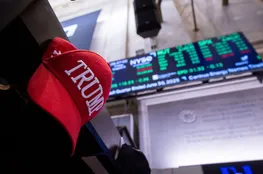Asian financial markets are gearing up for a substantial selloff at the start of the week. Asian stocks are anticipated to open sharply lower on Monday, mirroring Wall Street's downturn on Friday. This followed investor reactions to U.S. jobs data and comments from top Federal Reserve officials that presented a 'worst of both worlds' scenario. Investors took this as an indication of weakening labor markets combined with little prospect for a significant interest rate cut next week. Japanese futures are pointing to the Nikkei 225 index opening more than 3% down.
Also influenced by the yen's strength, suggesting heightened risk aversion in global markets. The S&P 500 and Dow both recorded their most significant weekly drops since March 2023, while the Nasdaq's 2.6% decline marked its worst weekly performance since January 2022. The U.S. economic and policy outlook is causing abrupt shifts in market sentiment, and the economic calendar for Asia is equally loaded with substantial indicators from China, Japan, and Taiwan. Japan is set to release key data including bank lending, trade figures, current account, and revised GDP growth numbers. Taiwan will publish its trade data.
Perhaps most crucially, China will disclose its producer and consumer price inflation figures. Overseas investors are becoming increasingly cautious about Asian stocks. According to LSEG data, they were net sellers in August. Additionally, JP Morgan recently revoked its buy recommendation on Chinese stocks, which closed at a seven-month low last Friday. The market reaction to the U.S. data on Friday might be more complex than initial interpretations suggest. The unemployment rate dropped slightly, wage growth picked up, and officials expressed optimism about achieving a 'soft landing.'
Both Fed Governor Christopher Waller and New York Fed President John Williams indicated that the time is nearing for rate cuts, but neither hinted at a substantial 50 basis points reduction. Meanwhile, falling oil and commodity prices add another layer of investor unease about the global economic scenario. Asia's Monday calendar is set to provide additional critical data. Beijing is expected to announce that consumer inflation in China rose to 0.7% in August from 0.5% in July, reflecting some progress. However, the battle against deflation continues, as factory gate prices are expected to show a 1.4% year-on-year decline in August, nearly double July's 0.8% drop.
Addressing these deflationary pressures, former central bank governor Yi Gang called for increased fiscal stimulus and accommodative monetary policy last Friday. In Japan, second-quarter GDP growth is likely to see a slight upward revision, while Taiwan's export growth in August is forecasted to more than double to 7.35%. Taiwan's TSMC, the world's largest contract chipmaker and a significant Nvidia partner, will also be of keen interest to investors.
























